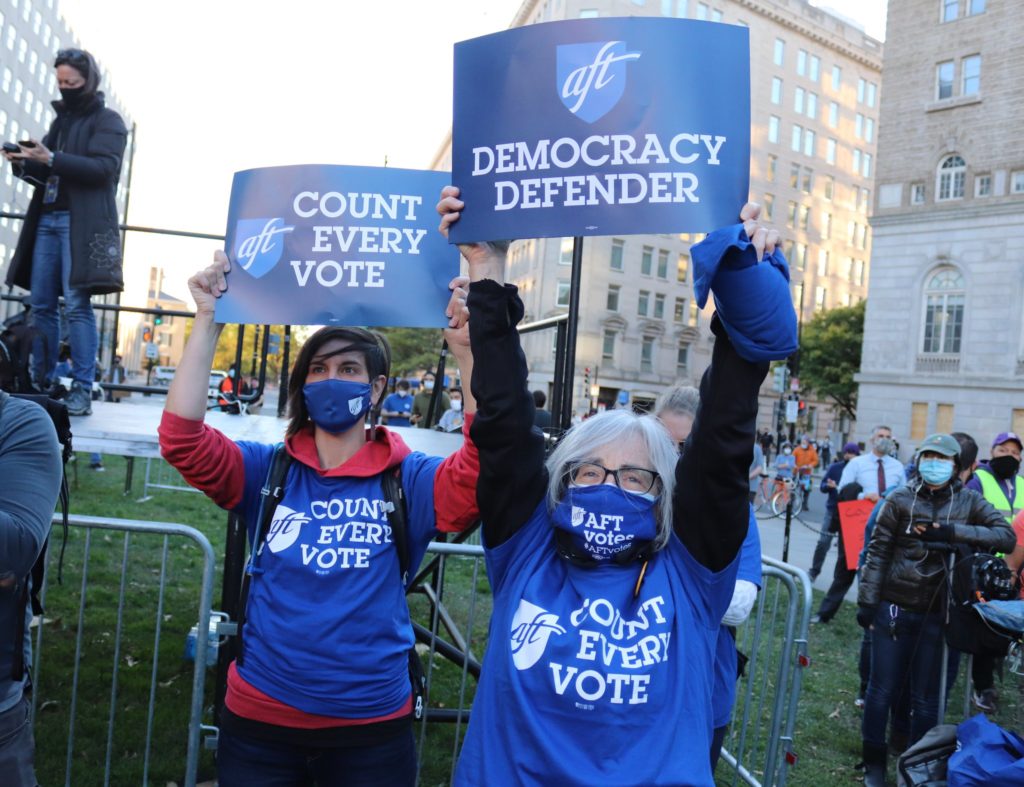
Stephen Zunes, professor of Politics and International Studies at University of San Francisco, joins Michael and Stephanie on this episode of Nonviolence Radio to talk about how the coup attempt on January 6 reveals some remarkable and genuinely hopeful forces growing inside our democracy. Rather than fear and outrage, Professor Zunes encourages us to take heart in the effective and well-planned nonviolent response by many activists to the angry protesters. This response was not spontaneous, indeed for months various groups and organizations offered targeted trainings on a range of nonviolent methods — and activists clearly learned some key strategies necessary for effective nonviolent action:
“You have this combination of people who have shown a willingness to hit the streets and a willingness to be willing to face arrest and to engage in massive noncooperation. There was one thing that was really important about these trainings: it emphasized the importance of noncooperation that underscores what Gene Sharp and a lot of other people – Gandhi and so many other people that I’ve talked about before – governments are only as strong as people’s willingness to cooperate.”
The nonviolent response on January 6 to the violent challenge to the American democracy could only have happened given a growing commitment to nonviolence, one that we have every right to expect will continue should greater threats emerge in the future. And it is precisely this commitment that, with effort and dedication, will allow us to listen better and come together as citizens who may disagree on this or that policy, but ultimately care deeply about each other as human beings.
Find the Transcript Here at Waging Nonviolence
Podcast: Play in new window | Download
Subscribe: RSS








